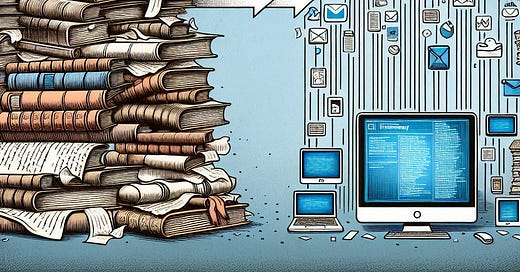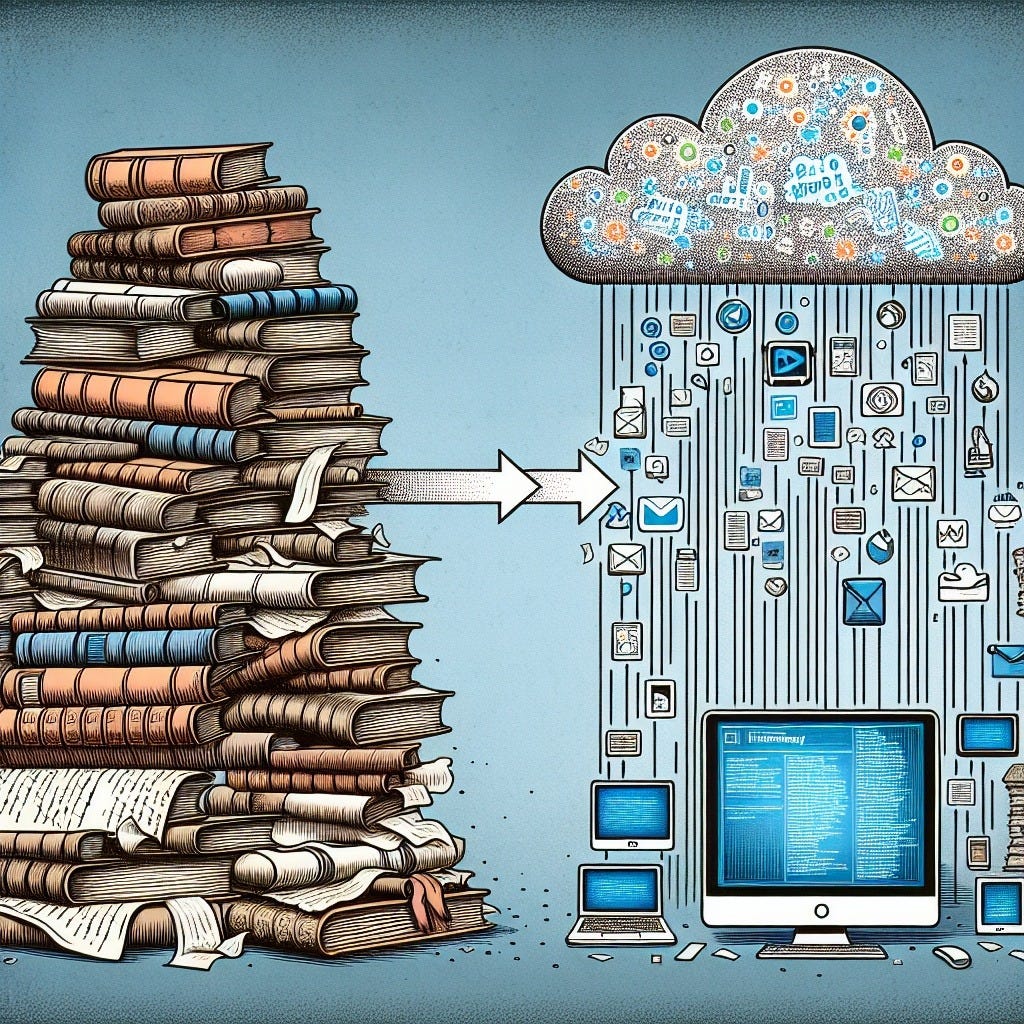This essay explores how AI-driven tools are reshaping the analysis, interpretation, and communication of historical narratives. Drawing on our experiences making the Japanese Modernity podcast series, specifically the episode on the Maria Luz Incident, this essay explores AI's potential to expand public engagement with history while addressing the complexities involved in maintaining the rigor and nuance that historical scholarship demands.
The goal of the series is to create accessible, engaging narratives by integrating rigorous academic research with advanced AI-driven tools. We aim for this combination to help bridge the gap between academic scholarship and public interest while fostering a broader understanding of Japan's role in global history.
You can listen to it here:
The Deep Dive series is an experiment with AI as a tool for enhancing how historians share historical research. We employed Google’s NotebookLM to analyze a piece of research writing—an article by historian Bill Mihalopoulos published in the journal Past & Present—and generate a scripted podcast dialogue performed by two AI-generated hosts. The resultant ‘discussion’ is a fascinating blend of academic knowledge and technological innovation.
The experiment underscores the potential of AI to craft highly accessible formats for new audiences to engage with scholarly work. By automating the production processes, for no cost (at present), we have been able to create a dynamic, personalized means for listeners to engage with historical scholarship that is otherwise not sufficiently 'marketable' to attract funding for media production.
In the specific context of the Maria Luz Incident podcast, AI effectively synthesized an extensive array of historical data into a narrative that was accessible to casual listeners and introductory level undergraduate learners. This application of technology-facilitated a nuanced exploration of intricate themes such as labor, migration, and imperialism, rendering them more comprehensible and engaging to a broad audience.
One of AI's most notable contributions to history is its ability to personalize content, which potentially democratizes access to historical knowledge by tailoring information to fit the diverse preferences of a wide audience. Our podcast exemplifies how AI can strategically adapt historical presentations to resonate with varied demographic groups, whether they are newcomers to the subject or seasoned scholars seeking a thorough analysis.
It was not a perfect result; indeed, the AI misinterpreted nuanced historical contexts, oversimplified complex events, and could not critically discern the author's overall argument. These issues underscored the necessity of human oversight (and the need for Google to give us more tools to tweek the process), highlighting both the potential and the pitfalls of using AI in communicating complex historical topics.
AI in the domain of historical communication introduces several pertinent concerns. Predominantly, AI algorithms tend to prioritize user engagement, which may lead to the oversimplification or sensationalization of historical narratives. Such tendencies pose a significant challenge to communicating the complexity and subtlety that are quintessential to rigorous historical scholarship. AI's inherent limitations—such as its inadequate interpretative and contextual awareness—necessitate a robust human editorial presence to critically assess and refine AI-generated narrative.
While some proponents argue that advances in AI technology may eventually diminish the need for human oversight, the complex nature of historical interpretation and the ethical risks associated with potential misrepresentations strongly advocate for sustained human engagement. Historians need to take a leadership role in ensuring that AI tools are able to generate historical narratives that are comprehensive, inclusive, and representative of a multiplicity of perspectives (Milligan, 2022). Without expert oversight, AI-generated history will perpetuate entrenched biases and or overlook significant voices in historical discourse.
AI-driven media, including simulations and interactive narratives, offer unprecedented opportunities for historians to engage the public in more dynamic and interactive ways. These innovative tools allow for the creation of immersive experiences that make complex subjects, such as the nuances of colonialism and the dynamics of economic transformations, more accessible and relatable to the general public (Ahnert et al., 2023). However, there is an inherent risk that these innovations might oversimplify historical complexities. To mitigate this, historians need to engage in interdisciplinary collaborations with technologists, digital humanists, and media experts to develop formats that are both engaging and academically rigorous.
Concluding Thoughts
The integration of AI into historical research and communication presents both promising opportunities and significant challenges. On the one hand, AI's ability to process large datasets and identify patterns offers historians new tools for uncovering previously hidden connections and insights, opening new avenues for discovery and public engagement. On the other hand, AI's reliance on algorithmic linearity risks oversimplifying the complexities of history, prioritizing easily quantifiable data over long-term cultural shifts, societal changes, or individual agency, and potentially perpetuating existing biases.
Historians must navigate this tension carefully to ensure that AI complements, rather than replaces, rigorous historical methods. The effective integration of AI into historical research will require human historians to actively guide AI systems, interpret their outputs, and maintain ethical oversight. By critically engaging with AI technologies, historians can harness AI's potential while upholding the depth, nuance, and ethical integrity that define quality scholarship. Embracing this balance will enable the discipline to evolve thoughtfully in the digital age.
References
Ahnert, R., Griffin, E., Ridge, M., & Tolfo, G. (2023). Collaborative Historical Research in the Age of Big Data: Lessons from an Interdisciplinary Project. Cambridge University Press. https://doi.org/10.1017/9781009175548
Floridi, L. (2019). The Logic of Information: A Theory of Philosophy as Conceptual Design. Oxford University Press. https://academic.oup.com/book/27824
Milligan, I. (2022). The Transformation of Historical Research in the Digital Age. Cambridge University Press. https://doi.org/10.1017/9781009026055
O'Neil, C. (2016). Weapons of Math Destruction: How Big Data Increases Inequality and Threatens Democracy. Crown Publishing. https://archive.org/details/weaponsofmathdes0000onei_u8q4
Vincent, J. (2024, October 3). People are using Google study software to make AI podcasts—and they’re weird and amazing. MIT Technology Review. https://www.technologyreview.com/2024/10/03/1104978/people-are-using-google-study-software-to-make-ai-podcasts-and-theyre-weird-and-amazing/
Zuboff, S. (2019). The Age of Surveillance Capitalism: The Fight for a Human Future at the New Frontier of Power. PublicAffairs. https://www.hachettebookgroup.com/titles/shoshana-zuboff/the-age-of-surveillance-capitalism/9781610395694/?lens=publicaffairs





